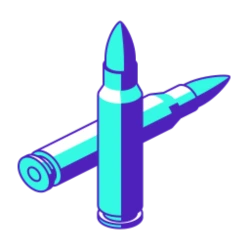To start a business in the firearms industry in Ohio, obtaining a Federal Firearms License (FFL) is a necessary step. Depending on the type of FFL, it can grant the holder certain privileges. Examples include the ability to buy and sell firearms and ammunition, import weapons and accessories, and open up various career opportunities. It is important that businesses seeking to enter this industry ensure that they are fully compliant with regulations before proceeding. Once you have obtained your FFL, you will be well-positioned to succeed in the industry. In this article, we will provide a detailed overview of the process for obtaining an FFL in Ohio, including the requirements and steps involved.
Getting an Ohio FFL: An Introduction
As we discussed, a Federal Firearms License is a license issued by the U.S. Department of Justice’s Bureau of Alcohol, Tobacco, Firearms and Explosives. It allows individuals or businesses to engage in certain firearms-related activities such as manufacturing, selling, importing, and repairing firearms.[1]ATF. “About the Bureau of Alcohol, Tobacco, Firearms and Explosives”. Accessed on July 10, 2024.
Holders of an FFL are legally permitted to buy and sell guns at the federal level. They are also bound by state laws related to the ownership and trade of firearms. Next, we will discuss the requirements for obtaining an FFL, including federal, state, and local regulations, the costs associated with obtaining an FFL, and the different types of FFLs available for varying business models.
Step 1: Meet All of the FFL Requirements

The Federal Alcohol, Tobacco, Firearms, and Explosives (ATF) sets the federal guidelines for operating in the firearms industry. All states must follow these requirements at a minimum. However, states and local governments may impose licensing and regulatory requirements. If you operate in that state, you must also comply with that particular state or area’s requirements and federal rules.
Obtaining an FFL can involve a significant amount of paperwork, depending on the state in which you live. However, the process is quite achievable once you know the steps. In the following sections, we will outline the federal FFL requirements and provide more information about the specific requirements for obtaining an FFL license in Ohio.

Federal requirements
Before applying for an FFL in Ohio, it is important to ensure that you meet the eligibility requirements set by the ATF. These requirements include things like:
- Being at least 21 years of age
- Being a US citizen or permanent resident
- Being able to own and operate a firearm legally
If you plan to start a firearms business in Ohio, the first step is to ensure you meet these federal requirements. Additionally, check out our full database of federal requirements.

State requirements
After verifying that you meet the federal eligibility requirements for obtaining an FFL license in Ohio, the next step is reviewing the state requirements. These requirements are typically divided into two categories: licensing requirements and registration requirements. In the following sections, we will provide more information about both of these categories.
Ohio FFL Licensing Requirements
One of the advantages of starting a firearms business in Ohio is that the state has no additional licensing requirements beyond the FFL. This means that once you obtain your FFL, you can start your business. This can allow you to begin selling, manufacturing, or importing sooner and can also save you money on costs.
Ohio FFL Registration Requirements
While there are no additional licensing requirements for starting a firearms business in Ohio, you must register your business with the state. All Ohio businesses must follow these standards, not just those in the firearms industry. If you plan to run your business there, even if it is already established in another state, you will also need to register in Ohio.

Local and zoning requirements
Zoning requirements can be challenging in Ohio for any type of business, as there may be no specific or standard regulations to follow. It can all come down to the discretion of the local authority.
This process can prove especially difficult for businesses in the firearms industry due to the negative stigma associated with this line of work. As a result, it may be difficult to obtain a license in large cities or residential areas. If you encounter this issue, it may be necessary to communicate your business plan to the zoning department and help them understand the daily operations of your business. While this can be a hurdle, working with the zoning department may help you overcome it.
Step 2: Select the Type of FFL You Need
Selecting the appropriate type of FFL that you need is important for businesses looking to engage in gunsmithing or firearm dealing. Business owners should consider two key factors when choosing an FFL. What does their business intend to do (sell, manufacture, etc.), and how does it plan to do it (business model)?
For example, a processor-only FFL may be suitable for one business. On the other hand, a Type 1 (Dealer/Manufacturer of Ammunition & Reloading Components) FFL may be a better fit for another. Researching different FFL types can help entrepreneurs decide which type suits their business model.

FFL license types
There are eleven different FFL types in total, which fall into three categories: manufacturer, importer, and dealer. Next, let’s explore these eleven FFL types and what to consider when choosing one.
Here are the main things to consider:
- The type(s) of firearms you plan to sell: The sale of certain firearms can influence whether you have to get a higher or lower-tier FFL.
- Your business model: Are you a brick-and-mortar store, an ammunition dealer, or an eCommerce retailer? Are you manufacturing, importing, and/or selling firearms?
Step 3: Complete an Online FFL Course

Enrolling in an online FFL course can be an effective way to get started in the firearms industry. These courses can provide a comprehensive understanding of the license types, regulations, taxes, and other important aspects of running a successful firearms business. While an online course is not required to obtain an FFL, this option ensures your business complies with all federal regulations. In addition, an online FFL course can help you understand how to run your gun shop or store efficiently, expand your customer base, and give you a competitive advantage as a new entrepreneur in the firearms industry.
Step 4: Apply for Your Ohio FFL
It’s time to apply once you meet all federal/state regulations and choose the correct FFL for your business. You will submit your Federal Firearms License application to the Bureau of Alcohol, Tobacco, Firearms, and Explosives.[2]ATF. “Application for Federal Firearms License”. Accessed on July 10, 2024. The application should include:
- Fingerprints: Your fingerprints are used to conduct a criminal background check.
- Photographs: Your photograph is used to create your FFL license.
- A completed application for a Federal Firearms License.
- The appropriate fee depends on the license you choose.
Step 5: Have an Interview with a Representative From Your Regional ATF Office
Before issuing a Federal Firearms License, the ATF schedules a meeting with an industry Operations Investigator (IOI) to confirm that the applicant meets all the necessary requirements and has good moral character. During the meeting, the IOI discusses various topics with the applicant, including the purpose of their business, employment status, partnerships, and background check information. This process demonstrates the ATF’s due diligence and commitment to ensuring that individuals receiving FFLs are trustworthy and reliable firearm dealers and sellers.
FFL License Costs in Ohio
As we mentioned, there are nine different types of FFLs. These licenses range in price drastically (though most standard applicants will pay $200 or less). Just like the license type, the ATF sets the federal cost for each license. It remains standard regardless of where you live.
Getting a Federal Firearms License in Ohio: Closing Thoughts
For entrepreneurs looking to jumpstart their business in Ohio, getting an FFL is a great way to start. The process is relatively simple, and the effort to get one can pay off in spades. However, since the firearms industry is considered high-risk, finding the right payment provider is critical. With your FFL license and a qualified gun friendly credit card processor by your side, you will not only be equipped to enter the firearms industry in Ohio, but you will have the knowledge to make your business successful!
All Businesses Deserve a Chance
We can approve almost any business type.
Approval
Rating
FFL Ohio FAQs
Do I need an FFL in Ohio?
Yes, you will need an FFL in Ohio if you plan on engaging in a business within the firearms industry. This includes, but is not limited to, business activities related to manufacturing, importing, and selling firearms. However, if you’re just a normal citizen looking to purchase a weapon for personal use, you do not need an FFL.
Who can apply for an FFL in Ohio?
Any individual who meets the federal requirements can apply for an FFL. Ohioans are not subject to additional restrictions or requirements.
Do I need to register as a business to get an Ohio FFL?
Yes, to apply for an FFL, you must have your firearms business registered with the state of Ohio.
How can I find an FFL dealer in Ohio?
To find an FFL dealer in Ohio, you can start by searching online directories or databases such as the ATF’s FFL eZ Check system.[3]ATF. “FFL eZ Check”. Accessed on July 10, 2024. This tool allows you to search for FFL holders by zip code, type of license, and business name. You can also contact the ATF directly to request a list of FFL holders in Ohio. Additionally, you can ask for recommendations from other firearm enthusiasts. Or check with local gun stores or ranges to see if they can refer you to an FFL dealer in your area.
Can you have a home-based FFL in Ohio?
Yes, you can have a home-based FFL in Ohio.
Can I apply for an FFL with an Ohio gun trust?
You may be able to apply for an FFL transfer with an Ohio gun trust. But since it’s not an individual, you cannot use that trust to apply for a license. In other words, a trust can purchase firearms but not deal with them.
Does the BATF&E have requirements for an FFL in Ohio?
Yes, the BATF&E, also known as the ATF, sets the federal regulations related to FFLs, the costs of each FFL, and the types of FFLs offered.
Do I need to apply for an SOT for my Ohio FFL?
If you plan to engage with NFA firearms, you must apply to become a SOT (special occupancy taxpayer).
NFA weapons, also known as National Firearms Act (NFA) weapons, are a category of firearms regulated by the National Firearms Act of 1934 and subsequent amendments.[4]ATF. “National Firearms Act | Bureau of Alcohol, Tobacco, Firearms and Explosives”. Accessed on July 10, 2024. These weapons include machine guns, short-barreled rifles, short-barreled shotguns, silencers, and other types of firearms that are considered particularly dangerous or complex. There are stricter regulations and controls over NFA weapons than other types of firearms.
How long does it take to get your FFL in Ohio?
Getting an FFL can be a lengthy process. However, the process is relatively straightforward, with Ohio not having additional state licensing requirements. Once you have all your documents, business registration, and application done, you should have your results within 60 days.
How can I transfer an FFL in Ohio?
Every individual involved in the firearms industry must get their own FFL. You cannot transfer an FFL from one individual to another, including purchasing an existing business or a business left to a family member.
How much does an FFL transfer cost in Ohio?
FFL transfers are usually subject to a one-time fee. This fee covers all of the paperwork and background checks associated with transferring a firearm. Generally, these fees range from around $25-$50 and can cost more depending on the state’s specific regulations. So, if you’re buying or trading a gun across state lines, don’t forget that you’ll likely need to factor in this additional expense.
How hard is it to get an FFL in Ohio?
Getting an FFL in Ohio is about as easy as it gets. Ohio is a very gun-friendly state, and they have not imposed any additional state or local requirements in the application process.




